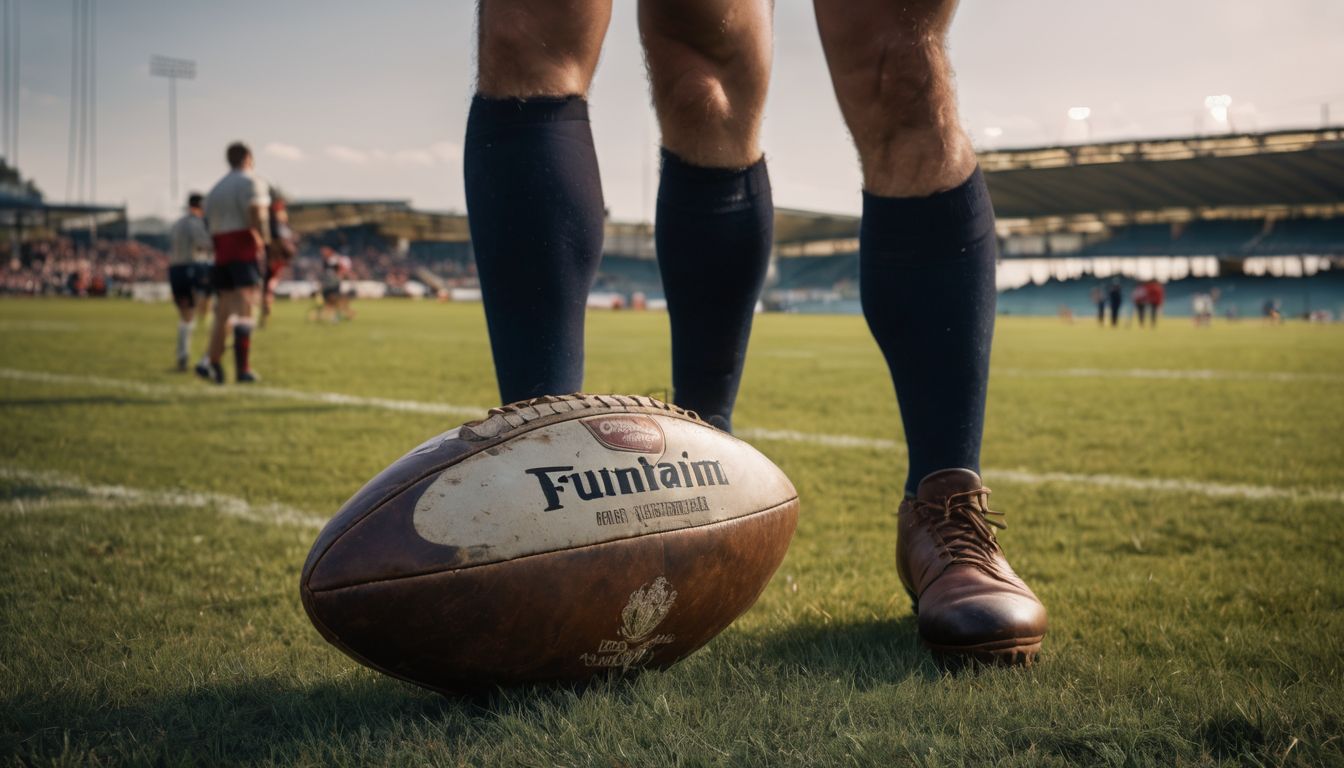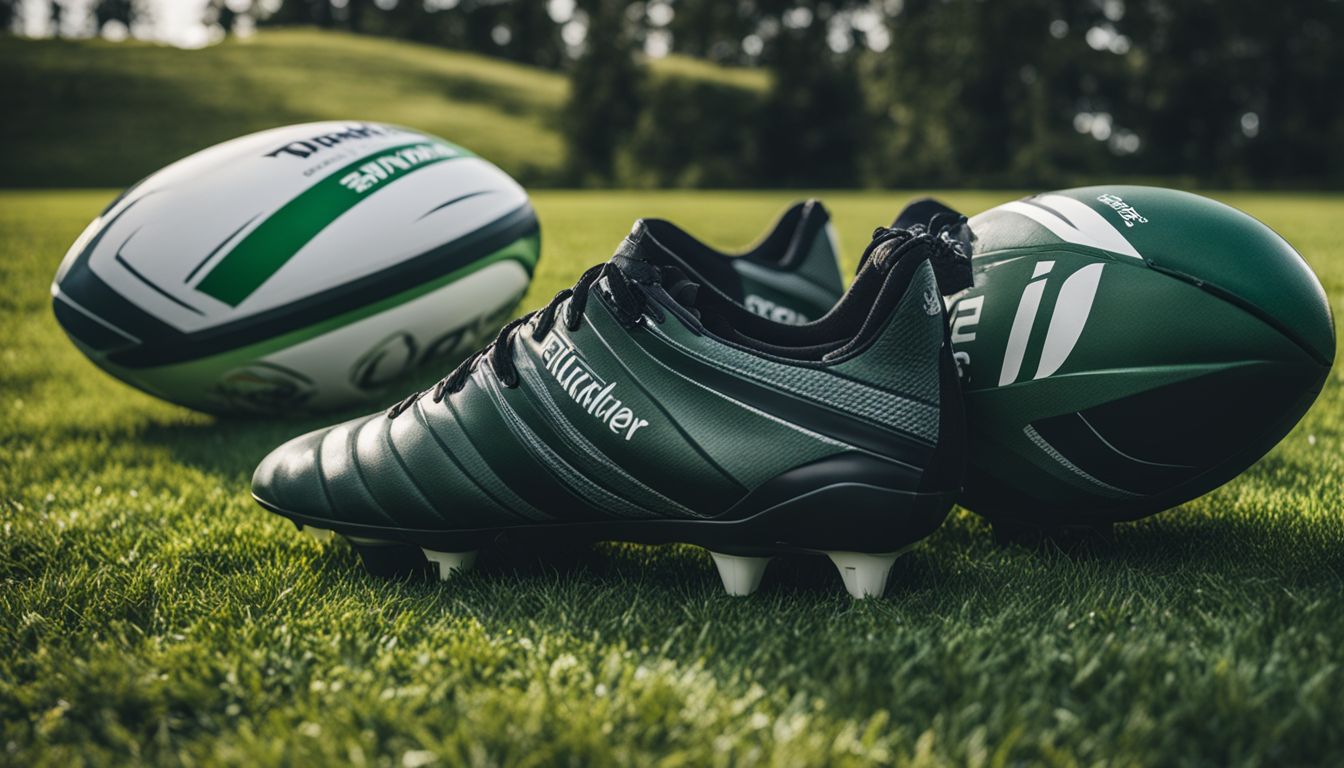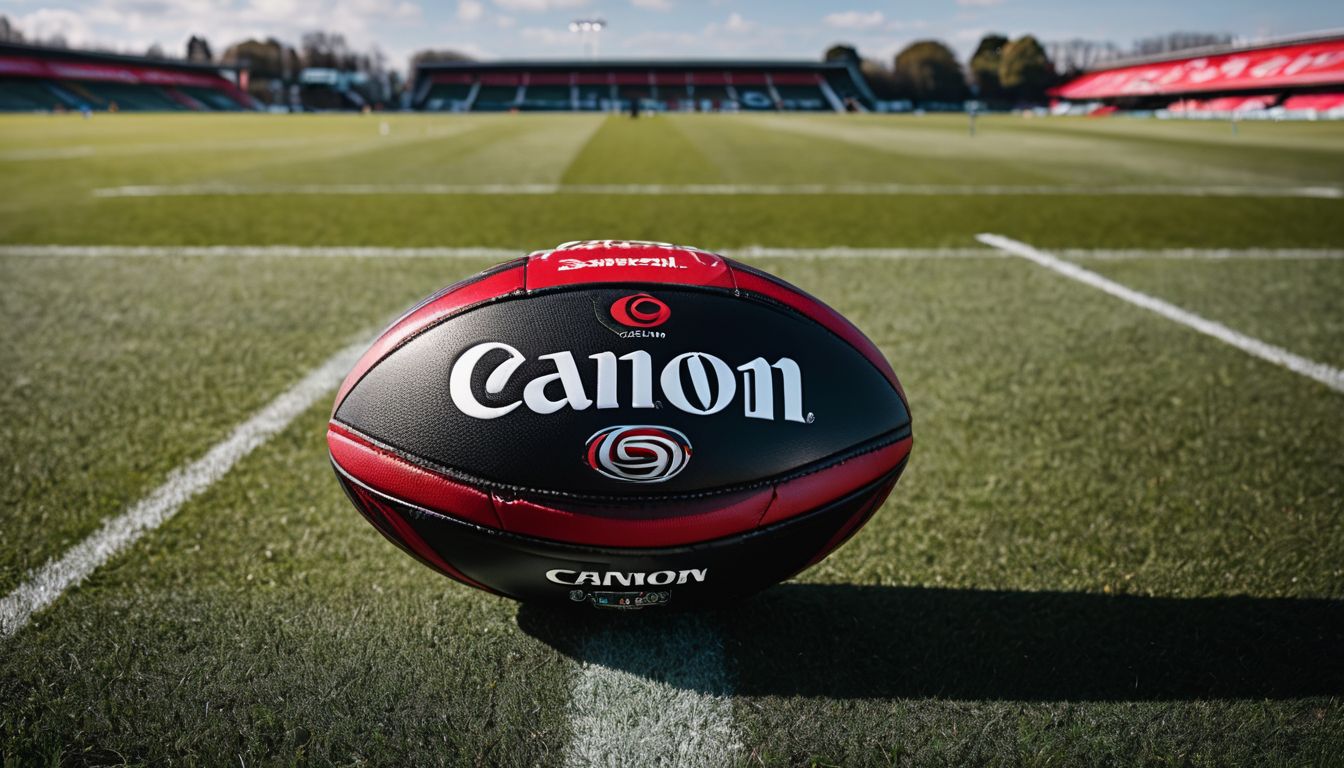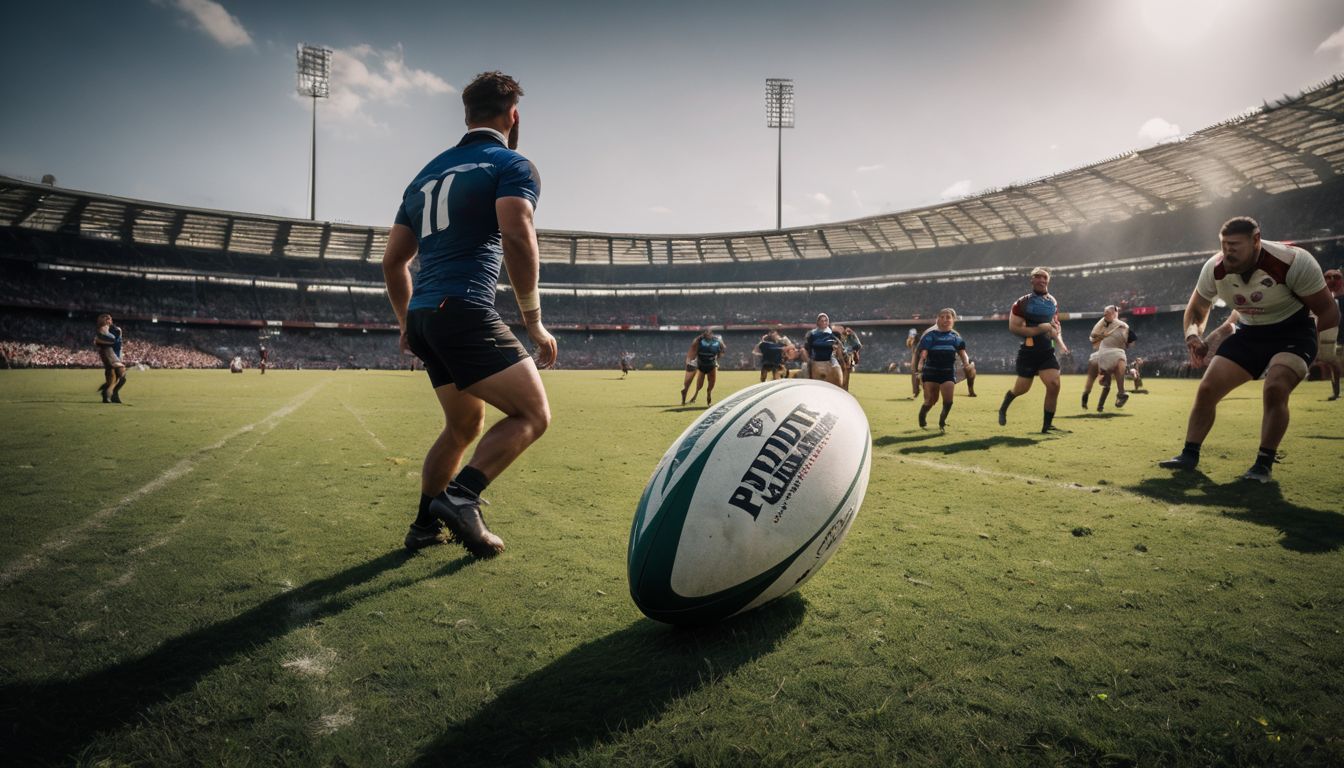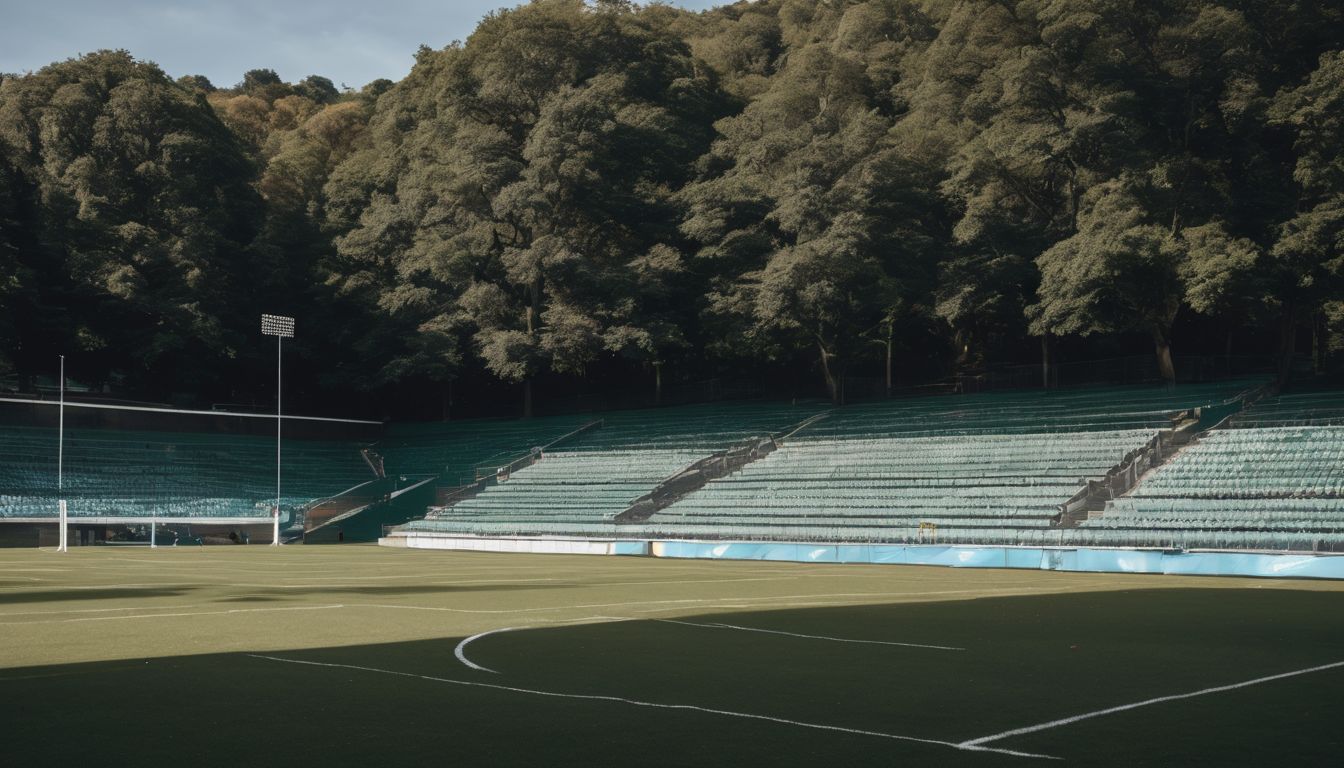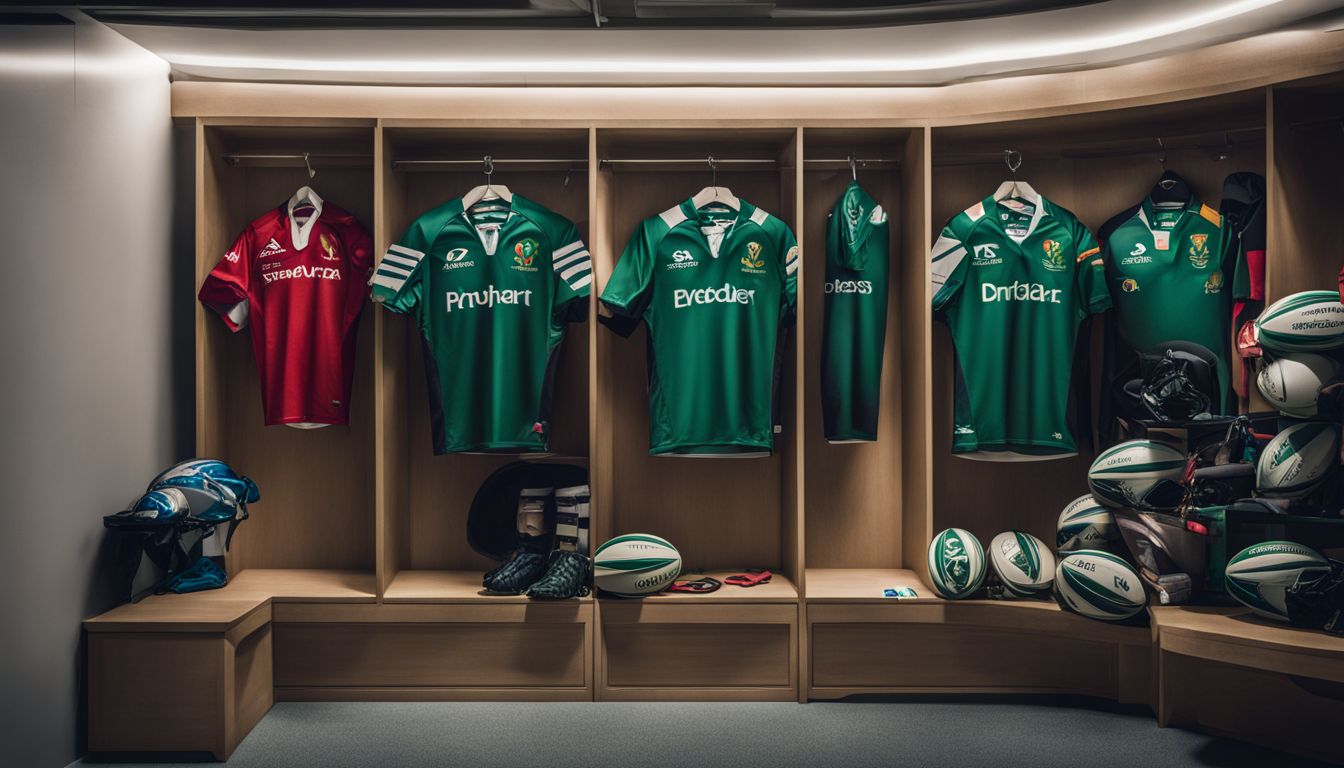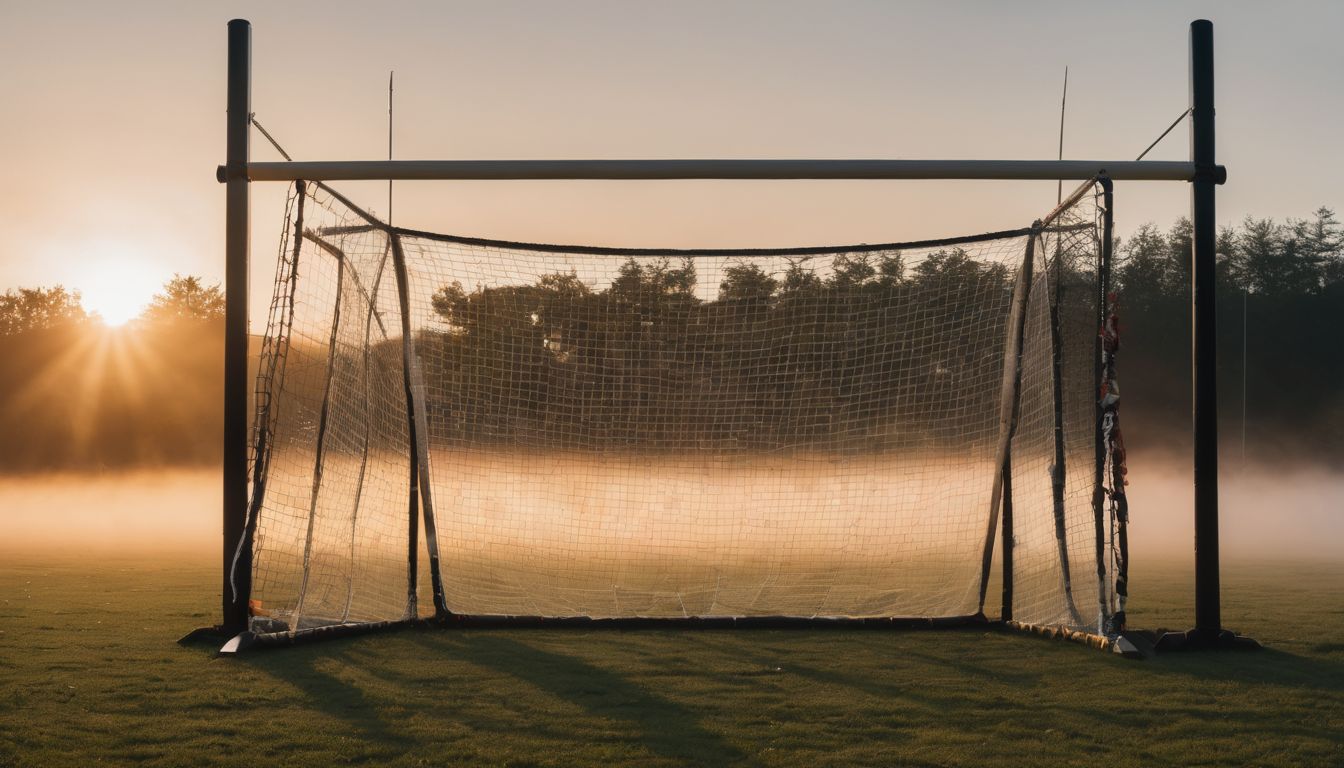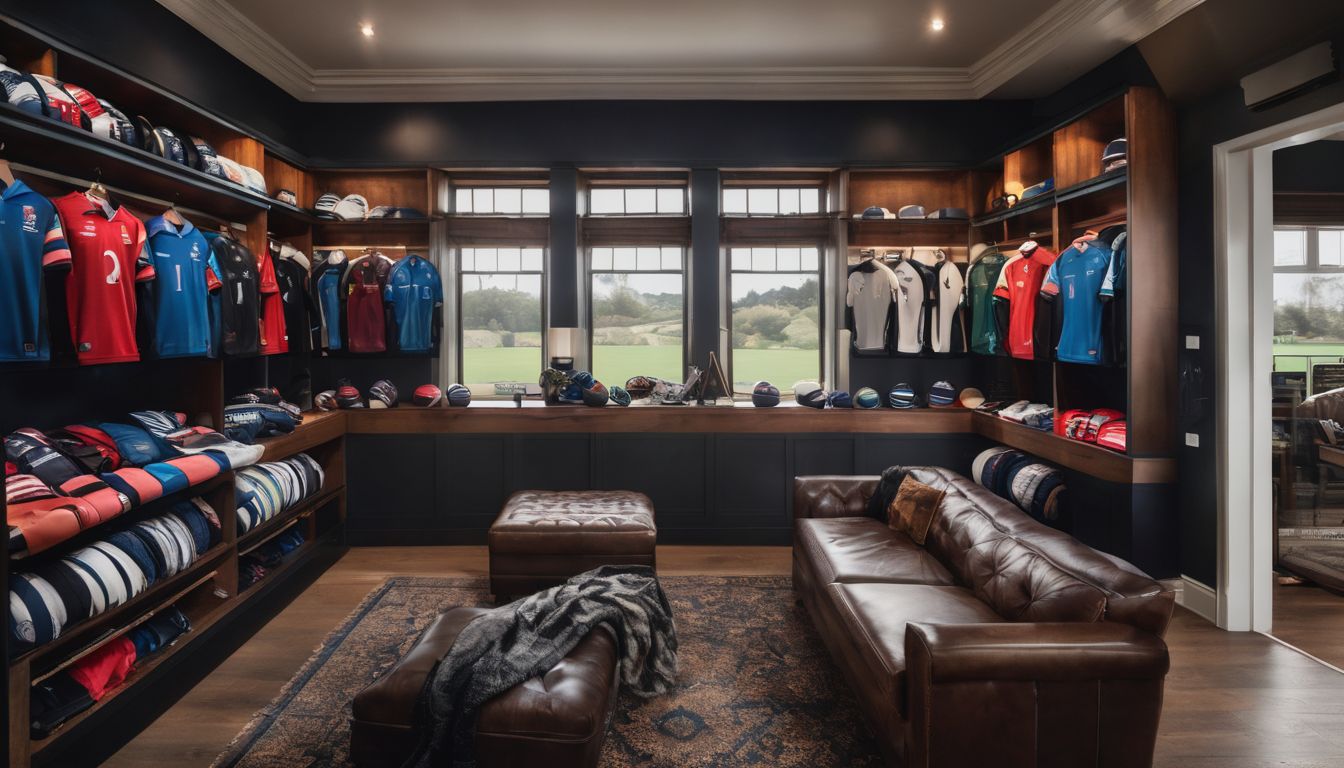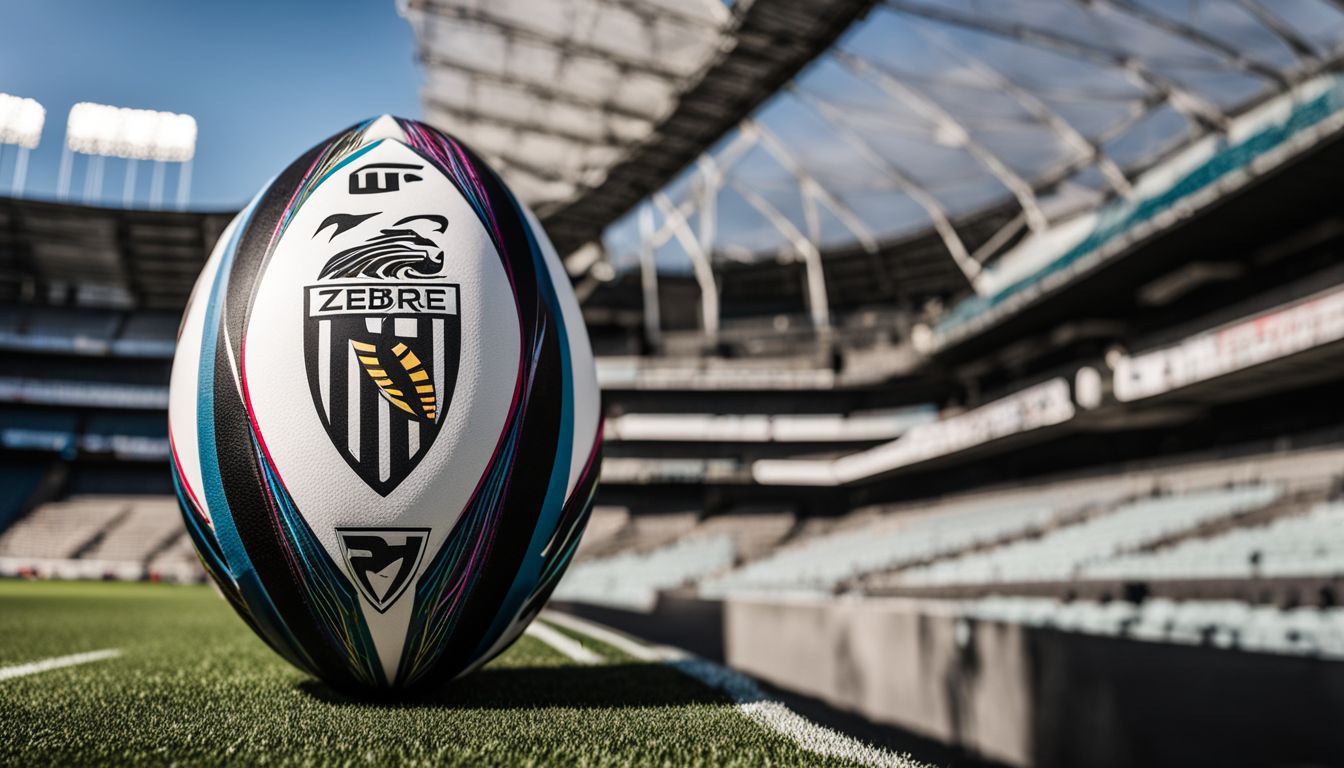The tales of rugby legends capture our imaginations and inspire players worldwide. Rugby’s history began in 1823, when William Webb Ellis famously picked up the ball during a football game.
Our article delves into how these giants of the game have shaped its ethos, teaching us valuable lessons beyond the pitch. Discover their enduring impact that transcends time itself!
Key Takeaways
- Rugby legends like William Webb Ellis, who famously picked up the ball in 1823, have shaped the sport’s ethos with values such as teamwork and sportsmanship.
- The World Rugby Hall of Fame honours players who embody rugby’s principles, influencing future generations on and off the pitch.
- Rugby greats demonstrate determination and resilience, overcoming challenges which inspire players to succeed in all areas of life.
- Teamwork is at rugby’s core; legendary players show how working together leads to success both in matches and beyond the game.
- By setting examples of excellence, past rugby legends pave the way for future athletes to achieve greatness and uphold the sport’s rich tradition.
Understanding the History and Ethos of Rugby
The origins of rugby can be traced back to the 19th century in England, where it evolved from traditional ball games. The game is built on values of respect, integrity, passion, and solidarity, creating a unique ethos that sets it apart from other sports.
The origins of rugby
Rugby’s journey began in the town of Rugby, Warwickshire at a prestigious school. In 1823, a bold move by William Webb Ellis who famously picked up the football and ran with it gave birth to what would become rugby.
This singular act broke the convention of the day and planted the seed for a new sport that embraced physicality and speed alongside traditional foot-based ball games.
As rugby grew in popularity, it developed its own unique set of laws distinguishing itself from other sports. Initially confined to an educational setting, it quickly spread beyond schools into civil society where northern English teams became pillars of local communities.
They organised competitions creating civic rivalries that forged rugby’s early competitive spirit. This was not just another game; it was becoming an integral part of social identity right at its roots.
The values and principles of the game
Rugby upholds a unique set of values and principles that emphasise respect, teamwork, and sportsmanship. These core values are deeply rooted in the sport’s ethos, highlighting the significance of playing within the spirit of the Laws.
The World Rugby Hall of Fame honours players and contributors who have exemplified these values while making notable contributions to the sport. Additionally, rugby’s history and traditions underscore its commitment to fair play and integrity, creating a culture where determination, resilience, and camaraderie are celebrated.
The principles of rugby extend beyond the game itself, influencing how players conduct themselves on and off the field. With an emphasis on discipline and mutual respect for opponents and officials, rugby legends have left an enduring legacy that transcends individual achievements.
The Impact of Rugby Legends
Explore the lasting impact of past rugby players and their contributions to the sport. Discover how these legends have shaped the game and left a legacy that continues to inspire future generations of rugby enthusiasts.
The legacy of past players
Rugby legends have left an indelible mark on the sport, shaping its history and culture. Their contributions to the game continue to inspire players and fans alike, epitomising determination, resilience, teamwork, and sportsmanship.
These icons have overcome significant challenges both on and off the field, embodying the values and principles of rugby. Their impact is celebrated in prestigious institutions such as the World Rugby Hall of Fame while their enduring influence resonates through the continued development of rugby at all levels.
The legacy of past players extends beyond their sporting achievements, reflecting a tradition deeply rooted in history and ethos. As icons like Jonah Lomu are immortalised for their contributions to rugby’s rich tapestry, they serve as beacons for future generations – perpetuating a legacy that transcends time and place.
Their contributions to the sport
Rugby legends have made significant contributions to the sport, shaping its history and culture. These icons have left a lasting impact on rugby through their exceptional talent, sportsmanship, and dedication to the game.
Their influence can be seen in the way they consistently upheld the ethos of rugby, inspiring future generations with their achievements both on and off the field.
The legacy of past players is evident in their unwavering commitment to teamwork, resilience in overcoming challenges, and their embodiment of fair play. They have not only elevated the level of competition but also served as role models for aspiring athletes around the world.
Lessons Learned from Rugby Legends
Discover the determination and resilience of rugby legends, as well as the importance of teamwork and sportsmanship. Learn how they have overcome challenges on and off the field, and how these lessons can be applied to business and life.
Determination and resilience
Rugby legends have exemplified exceptional determination and resilience throughout their careers, overcoming injuries, setbacks, and fierce competition to leave an indelible mark on the sport.
Their unwavering drive to succeed in the face of adversity is a testament to the mental fortitude required to excel in rugby. Whether it’s playing through pain or bouncing back from defeat, these icons have shown that perseverance and strength of character are essential qualities for success in both sports and life.
The legacy of determination and resilience left by rugby legends serves as an inspiration to players at all levels, encouraging them to push past obstacles and rise above challenges.
Their enduring commitment to achieving excellence continues to motivate future generations, shaping the mindset of aspiring athletes striving for greatness on and off the field.
Teamwork and sportsmanship
Transitioning from the individual determination and resilience of rugby legends, it’s essential to recognise the importance of teamwork and sportsmanship within the sport. Rugby is founded on a cooperative spirit that emphasises collective effort and mutual respect both on and off the field.
Teamwork is central to rugby, with players working together to achieve common goals through coordination, communication, and support. The sport exemplifies sportsmanship as players demonstrate fair play, integrity, and respect for opponents, referees, and teammates.
These values are ingrained in the ethos of rugby and continue to be upheld by current players who aspire to follow in the footsteps of legendary figures.
Overcoming challenges
Rugby legends are known for their remarkable ability to overcome challenges, demonstrating determination and resilience both on and off the field. Throughout history, these icons have faced physical adversities, injuries, and setbacks but have always emerged stronger.
Their unwavering perseverance has set an example for future generations of players, inspiring them to push through difficulties and keep striving for success. The enduring legacy of these rugby heroes lies not just in their achievements on the pitch, but also in their ability to confront and conquer obstacles with courage and tenacity.
The ethos of rugby emphasises teamwork and sportsmanship when facing adversities, teaching invaluable lessons about overcoming challenges together as a collective force. This mindset extends beyond the sport itself, providing impactful insights that can be applied to various aspects of life.
Business and Life Lessons from Rugby Legends
Discover how the mindset and principles of rugby legends can translate to success in business and life, and learn strategies for achieving success both on and off the field.
How their mindset can translate to success in other areas
Rugby legends showcase determination and resilience, embodying a never-give-up attitude that is crucial for success. Their ability to overcome challenges on the field illustrates the importance of perseverance in achieving goals.
The teamwork and sportsmanship displayed by these icons reinforce the value of collaboration and fair play, essential qualities for success in any area. Their mindset fosters strategies for tackling obstacles head-on, laying the foundation for achievement in business and life.
The influence of rugby legends extends beyond the sport, inspiring individuals to adopt their principles of hard work, dedication, and integrity across various domains. These extraordinary athletes have set a powerful example that transcends rugby fields, emphasising values that are universally applicable to achieving success in different areas.
Strategies for achieving success
To achieve success in rugby and in life, one must adopt the following strategies:
- Embrace Determination and Resilience:
- Foster Teamwork and Sportsmanship:
- Overcome Challenges with Grit:
- Cultivate a Positive Mindset:
- Continuously Improve Skills:
- Lead by Example:
The Future of Rugby Legends
The continued influence of past players will shape the future of rugby, inspiring the next generation to carry on their legacy. With their mindset and values as a foundation, they will continue to impact not only the sport but also other areas of life and business.
The continued influence of past players
Rugby legends continue to influence the sport and inspire future generations. Their enduring impact is evident in the way they have shaped the history and development of rugby. By setting new standards of performance, sportsmanship, and dedication, these past players have left an indelible mark on the game’s culture and achievements.
Their legacy lives on through their contribution to the World Rugby Hall of Fame, which commemorates their special achievements in shaping rugby union.
The continued reverence for rugby icons such as Jonah Lomu is a testament to their lasting influence on the sport. Their contributions to building a rich and storied history for rugby resonate with fans worldwide.
Inspiring the next generation
Encourage the future of rugby by highlighting the determination and resilience exhibited by legends. Emphasise teamwork and sportsmanship, showcasing how these values can positively influence young players.
Share stories of overcoming challenges to inspire perseverance among aspiring athletes. Transmit the belief that with hard work and dedication, success is attainable in rugby as well as in life.
Motivate upcoming generations to adopt the strong mindset and strategies for success displayed by rugby legends, allowing them to apply these principles not only on the field but also in their personal and professional lives.
Conclusion
The legacy of rugby legends is woven into the fabric of the sport, shaping its history and ethos. Their impact extends beyond the field, inspiring determination, teamwork, and sportsmanship.
As future generations are inspired by their achievements, rugby legends continue to influence and uphold the values of the game. The enduring legacy of these remarkable individuals serves as a testament to their lasting impact on rugby and its culture.
FAQs
1. What makes rugby legends so important in rugby history?
Rugby legends have shaped the very ethos of the game, from its origins to today’s Rugby World Cup; their contributions have left an enduring legacy on rugby culture and tradition.
2. How do rugby legends influence new players?
New players look up to Rugby Hall of Fame members, adopting their values and striving for similar achievements which impact how the sport is played and celebrated.
3. Did any American rugby player leave a significant legacy?
Yes, some American players stand out due to their substantial influence on both domestic and international scenes, enriching the American rugby legacy.
4. Can you name a legendary figure from the Rugby World Cup?
Jonah Lomu is considered one of the ultimate icons of Rugby World Cup history with a lasting sporting legacy that continues to inspire admiration worldwide.
5. Why are historical teams important for understanding rugby’s impact?
Exploring the history of renowned rugby teams helps us understand how traditions were formed and lets us appreciate how deeply embedded into global sports culture rugby really is.



